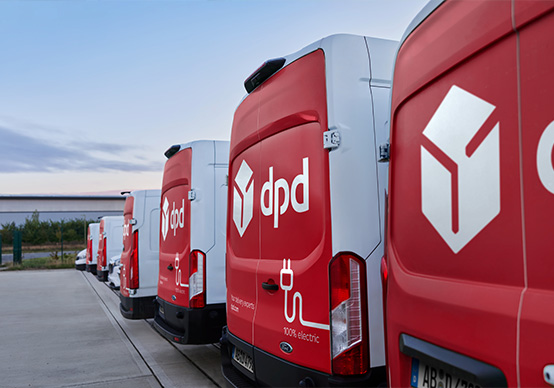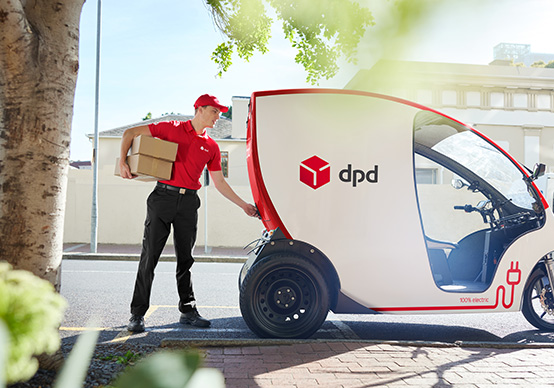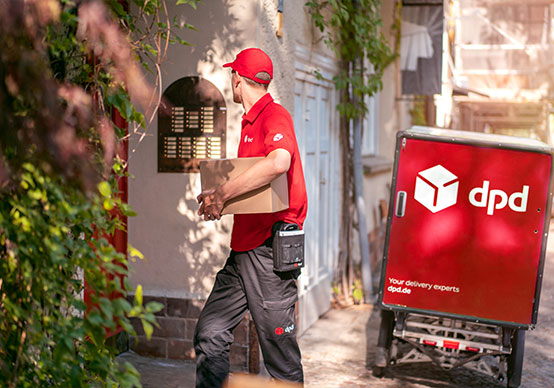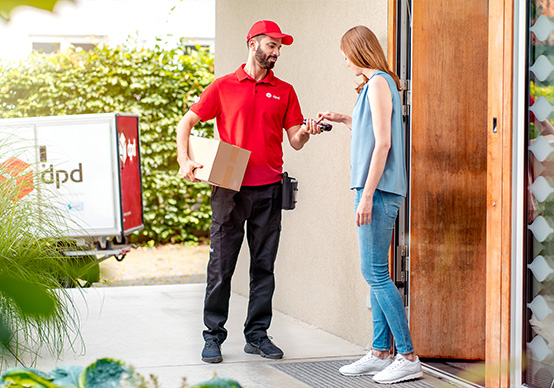

Net zero emissions by 2040:
Our road to climate neutrality
As part of Geopost, DPD takes responsibility for climate protection. For many years we have been investing in effective measures to reduce our greenhouse gas emissions. Now we are accelerating and intensifying our efforts: Together with Geopost, we want to achieve net-zero emissions by 2040.
Launch of our initiatives as early as 2006
Our measures for greater sustainability in parcel logistics have a long tradition. We are convinced that change can succeed - not overnight, but with consistency. Every year since 2006, we have been able to achieve significant successes through many small and large steps.
Some Geopost milestones of the past years
-
Electric delivery vehicles
Measures to deliver parcels using low-emission modes of transport in 350 European cities have increased the demand for electric delivery vehicles. -
Emissions
Absolute emissions were reduced by 6.5 per cent between 2021 and 2022 compared to 2020. -
Delivery in cities
In 102 cities, delivery is already low-emission. -
Air quality
Air quality is already being monitored in 28 cities.
Some Geopost milestones of the past years
Electric delivery vehicles
Measures to deliver parcels using low-emission modes of transport in 350 European cities have increased the demand for electric delivery vehicles.
This is our goal: net zero emissions by 2040
1 January 2024 marks a clear turning point for even more and even further-reaching climate protection in our industry: we are setting a new course and committing to reducing greenhouse gas emissions throughout our entire supply chain to zero by 2040. We will achieve this target in two steps.

43 per cent less CO2 by 2030
Geopost's short-term goal is to reduce CO2 emissions by 43 per cent on 2020 levels by 2030. This will be achieved through the targeted reduction of all emissions generated directly (e.g. through transport) and indirectly (e.g. through the increased purchase of renewable energies).
90 per cent less CO2 by 2040
To achieve the net-zero target, Geopost will reduce its emissions by 90 per cent by 2040 compared to 2020. The remaining maximum of 10 per cent will be offset by targeted projects to bind and store CO2.
This is how we aim to achieve our net zero target
-
Electrification of the delivery fleet on the first and last mile
We will increase the proportion of emission-free transport solutions to 85 per cent by 2030. The target is 100 per cent by 2035. -
Diversification of the long-distance transport fleet
In long-distance transport, we are increasingly focussing on trucks with low-emission technologies. For example, we are using more trucks powered by biogas, biofuel, hydrogen or electricity. We are also shifting more freight from road to rail. The proportion of alternative transport solutions in long-distance shipping is set to increase to 50 per cent by 2030, and to reach 100 per cent by 2040. -
Switching to renewable energies and increasing energy efficiency at our locations
By 2030, at least 70 per cent of our office and logistics facilities are to be supplied with energy from renewable sources. By 2035 the target is 100 per cent. -
Electrification of the company car and shunting vehicle fleet
90 per cent of our company cars and internal shunting vehicles are to be electric by 2030. Five years later, it should be 100 per cent.
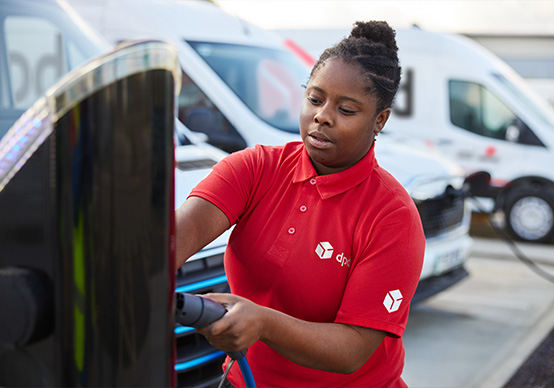
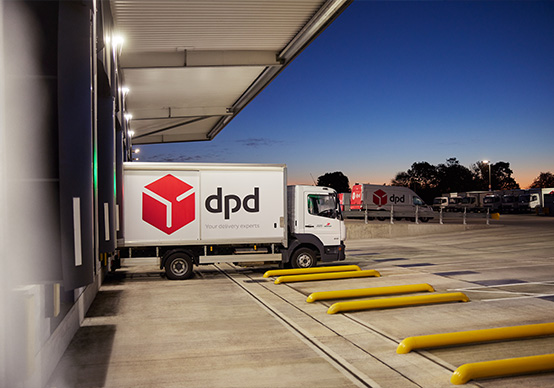
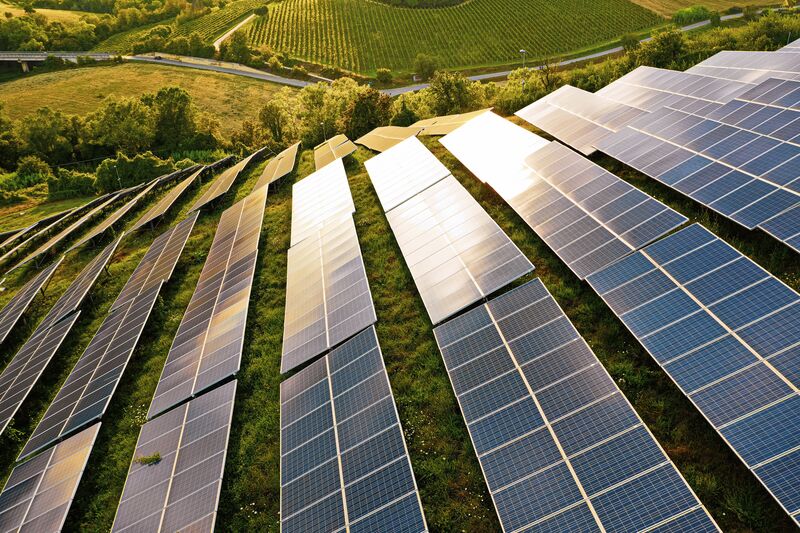
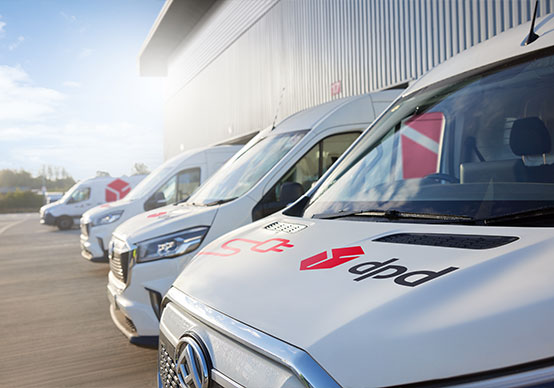
This is how we aim to achieve our net zero target
Electrification of the delivery fleet on the first and last mile
We will increase the proportion of emission-free transport solutions to 85 per cent by 2030. The target is 100 per cent by 2035.

Diversification of the long-distance transport fleet
In long-distance transport, we are increasingly focussing on trucks with low-emission technologies. For example, we are using more trucks powered by biogas, biofuel, hydrogen or electricity. We are also shifting more freight from road to rail. The proportion of alternative transport solutions in long-distance shipping is set to increase to 50 per cent by 2030, and to reach 100 per cent by 2040.

Switching to renewable energies and increasing energy efficiency at our locations
By 2030, at least 70 per cent of our office and logistics facilities are to be supplied with energy from renewable sources. By 2035 the target is 100 per cent.

Electrification of the company car and shunting vehicle fleet
90 per cent of our company cars and internal shunting vehicles are to be electric by 2030. Five years later, it should be 100 per cent.

All goals are scientifically based and demonstrably achievable


Geopost is the first global parcel service provider to have its short-term and long-term greenhouse gas emission reduction targets reviewed, analysed and approved by the prestigious Science Based Targets Initiative (SBTi). The SBTi certificate independently confirms that we can achieve net zero emissions by 2040. This paves the way for us to continue to demonstrate our pioneering spirit in the field of sustainability throughout the industry.
Sustainability Report 2022
Find out more in Geopost's sustainability report.
Home / Sustainability



